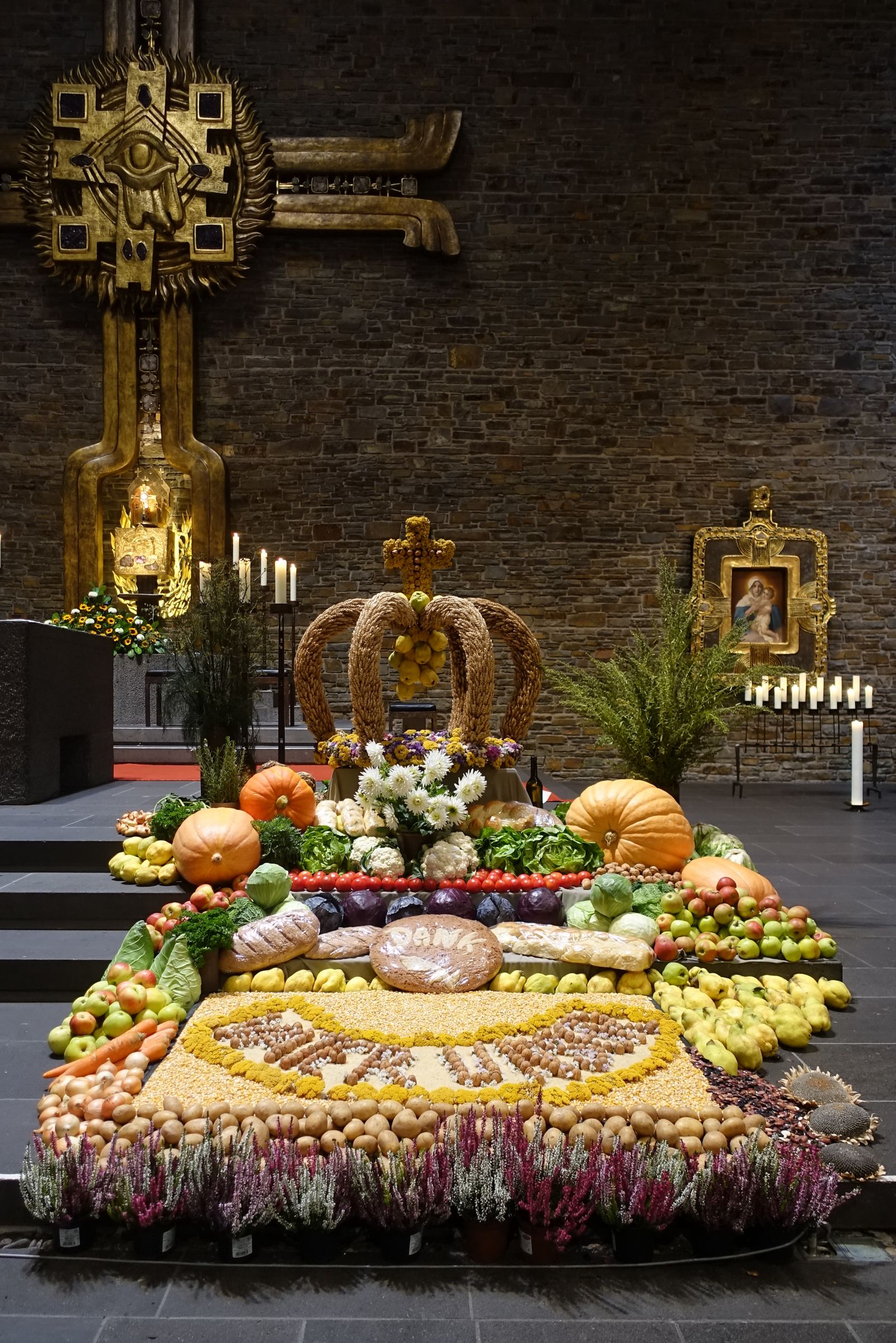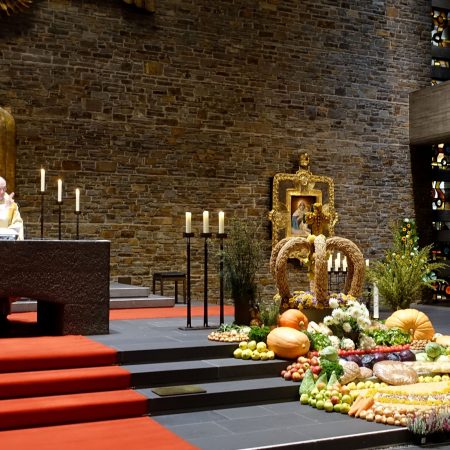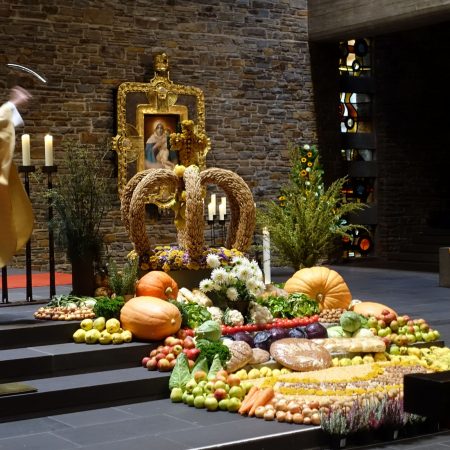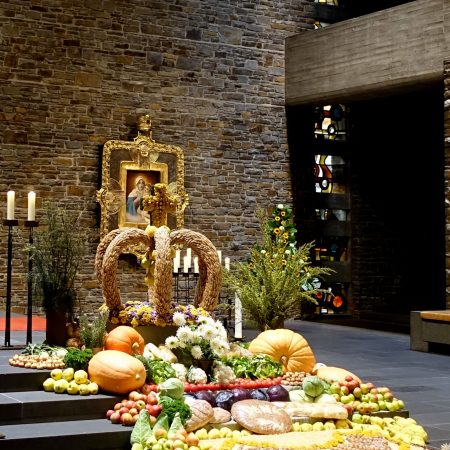 Sunday morning. It’s Harvest Thanksgiving Day!
Sunday morning. It’s Harvest Thanksgiving Day!
I’m going to the Adoration Church. Like my fellow sisters and many pilgrims, I am excited about the harvest altar, which our garden sisters and their team always prepare with much creativity and love. Already as I enter the church, I see from afar the harvest crown of ears of corn, as I get closer I recognize the words “Our Father”, laid with nuts and flowers. I discover a variety of fruits, vegetables, flowers and herbs, even homemade bread. The sight fills me with gratitude and joy for the rich harvest that we were able to bring back this year on Mount Schoenstatt.
More than a beautiful custom
It is more than a nice custom to thank God, the Creator and Giver of these good gifts, once a year in the harvest thanksgiving service. Yes, it is highly up-to-date, because it takes a different, deeper look at the topic of environmental policy, which is on everyone’s lips and is sometimes discussed fiercely.
Dr. Biberger also made us aware of this in his sermon. He referred to the question of what man’s relationship to creation and thus to his environment looks like, as the core question that is ultimately the subject of all these discussions.
A celebration with a confessional character
“How can man use the gifts and powers of nature? What is man’s responsibility towards nature? What is man’s relationship to nature? … Dealing with nature thus always indicates how man sees himself and what place he assigns himself in creation. –
The harvest festival also provides answers to these questions. Unlike in the past, when Thanksgiving was one of the central cultural festivals of a society, today it no longer plays a real role in our modern society. The concern to thank nature for its gifts has thus taken on a purely religious intention. In this respect the harvest festival in a western secular society takes on a confessional character, which it did not have in the past centuries in western societies, because religion, culture and society were much more strongly connected with each other”.
Impulse for everyday life
Dr. Biberger went on to explain that the harvest festival illustrates the relationship between man and nature and, in addition, the relationship between man and God. And he concluded by giving the impulse: “Today’s harvest festival invites us to thank God for his gifts. But it also inspires us to keep paying attention to the fact that we treat nature with respect and reverence. It reminds us of our responsibility to creation, a responsibility given to us by God”.
The blessed bread from the harvest altar later gave us the opportunity to taste the gifts and thoughts. Each one of us can find in his or her own original way ways to be respectful of creation. It doesn’t matter whether I am media-effective for the environment or use water and energy sparingly in my everyday life. But for me, as a Sister of Mary, it is important that I do not take the gifts that God gives us for granted, but use them carefully and thank Him again and again – like Mary would if she were in my place today.


